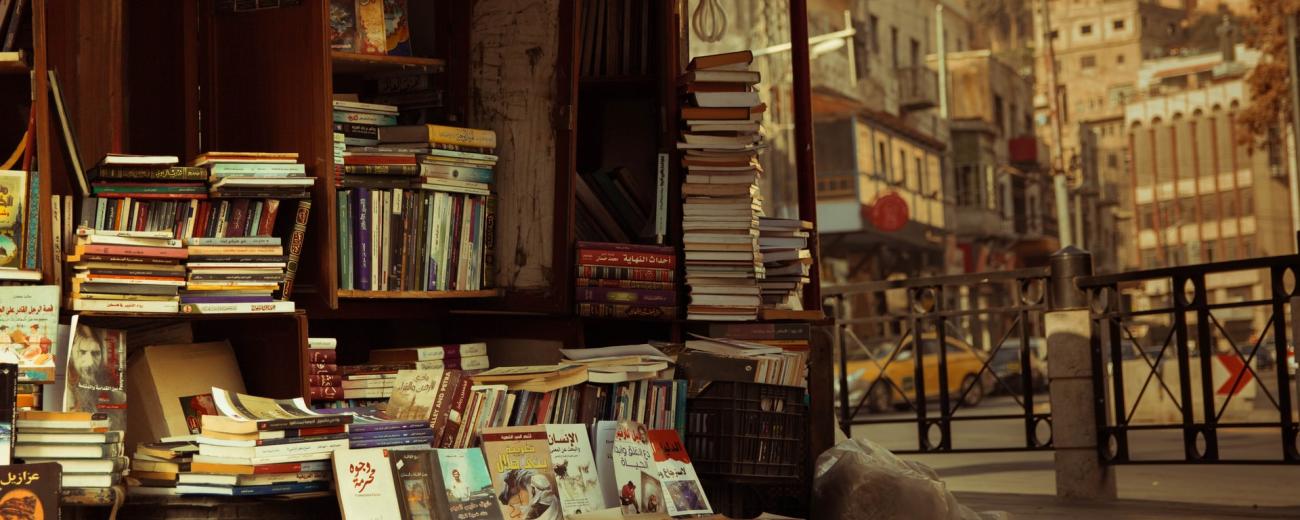Multilingual Locals and Significant Geographies


Overview
“Multilingual Locals and Significant Geographies: For a New Approach to World Literature” is a European Research Council-funded research project led by Professor Francesca Orsini, Chair of the Centre for Cultural, Literary and Postcolonial Studies (CCLPS), which explores the numerous, often fractured, and non-overlapping worlds of literature, and studies world literature from the perspective of multilingual societies.
These worlds will be explored through case studies in north India, the Maghreb (led by Dr Karima Laachir), and the Horn of Africa (led by Dr Sara Marzagora), which have been chosen for their multiple precolonial written and oral traditions and different experiences of colonialism and nationalism. The project will focus on three periods: colonial consolidation, decolonisation, and the current globalising moment. It will study the local interplay of cultural traditions, local debates on world literature, old and new forms of multilingualism, and actors and technologies of print and orality.
The aim is to counter the identification of world literature with English by highlighting the multilingualism and the many factors that contribute to regional and transnational literary fields. Instead of imitation and diffusion, we will seek to illuminate the dynamics of appropriation and creativity. In each of the three case studies, then, we shall ask:
- What were the old “significant geographies” in each region and each language—did they map onto one other or did they diverge?
- What new “significant geographies” were produced with colonisation, decolonialisation, and in this time of “world literature”?
- How can we think about local and transnational literary space in ways that highlight the “multiplicity of stories” (Massey) and the co-constitution of metropolitan and local rather than a simple narrative of metropolitan diffusion and colonial imitation?
- What did modern writers in north India, Morocco, and Ethiopia appropriate from older literary models/genres as well as those coming from other literatures?
- How did they appropriate and transculturate, and along which vectors (Thornber)?
- What have local debates on world literature been like, what have they privileged and selected, and why?
- What have modern language-literary formations marginalised?
- And how have older actors and forms of orature lived on in the world of print and other modern technologies; what mixed oral-written/printed forms have developed (Barber)?
- What were and are the dynamics of these “multilingual locals”—do people read and write in more than one language, or read and write in one but also participate in others?
- Do they keep literary tastes in the different languages separate or do they mix them? Should we think in terms of readerly, writerly, and textual contacts (Thornber), or the lack of them?
- Has any of this multilingual literary production achieve international (“global”) recognition, and if so how?
- And how does what circulates internationally relate to what circulates internally within these literary fields?
To our knowledge, there has been no direct literary link between north India, Morocco, and Ethiopia in modern times, so this will not be a project about contact zones or connections but rather about patterns. Comparison is functional to our aim of proposing a located approach to world literature that complements the current approach based on global circulation (Damrosch) and replaces the simplistic and misleading grand narrative of European centres and Asian and African peripheries (Moretti, Casanova).
Against a historical understanding that posits “world regions” as superseded by a “world-system” with Europe at its imperial centre (Moretti drawing on Wallerstein), a located and multilingual approach shows that the imperial centre–colonial (or quasi-colonial) periphery axis was only one among the vectors of circulation, that European literature was also co-constituted through this axis rather than being a prior formation, and that appropriation and transculturation are more productive ways of thinking about literary dynamics and developments even in the high noon of empire. The aim is thus to make a significant intervention in/reshape the field of world literature and propose methodologies, training models, and case studies to support our claim that “multilingual locals” and multiple “significant geographies” are appropriate for the study of world literature in other parts of the world, Europe included.
The project will run for 5 years and will include three post-doctoral fellows and three PhD students. There will be funds allocated for workshops in London, Europe, Morocco, Ethiopia, and India. The aim is to propose a theoretical approach, develop methods for multilingual training and research, and have strategic dialogues with scholars and writers from across SOAS' regions of specialism as well as the UK and Europe.
The project will be hosted in the CCLPS and is in line with the Centre’s ambition to intervene in world debates and disciplines from the perspective of its areas of research. If you wish to receive updates about the project, please sign up to the CCLPS mailing list.
Case studies
Team



